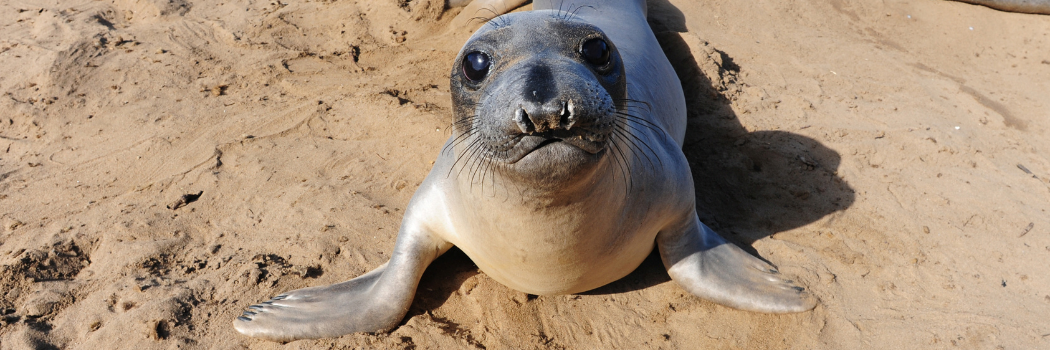Scientists discover the real-life impacts of northern elephant seal bottleneck

New research of northern elephant seals has revealed their reproductive and foraging success has been affected by a population bottleneck which nearly caused their extinction and could make them vulnerable as the environment changes in the future.
The research, led by Durham’s Department of Biosciences, analysed nearly 270 northern elephant seals exploring their entire genetic make-up and comparing pre- and post-bottleneck seals.
An iconic species
The northern elephant seal is an iconic species living along the very accessible Pacific coastline of Mexico and North America, hauling out on beaches to breed.
For much of the 19th century, they were hunted for the oil derived from their blubber. They were thought extinct after the last few that could be found were taken in 1892.
Fortunately, around 20 had survived, and they made a remarkable comeback. Now less than 150 years later, there are over 200,000 of them in an apparently healthy and stable population.
This new research, led by Durham, in collaboration with researchers in the USA and China, found that despite an apparent full recovery, the bottleneck has compromised key genes associated with reproductive success and the seals’ ability to forage efficiently.
Effects of the bottleneck
A critical aspect of elephant seal life history is their extensive deep diving foraging excursions when they accumulate fat stores to facilitate fasting during the breeding season.
The researchers identified three categories of post-bottleneck impact, including a reduction in diversity, lower female and male reproductive success, as well as lower dive performance. Together, leaving the species vulnerable to environmental stresses that could occur in the future.
The study has been published in the journal Nature Ecology & Evolution, part of the Nature portfolio. This research was supported by the National Natural Science Foundation of China (NSFC), National Science Foundation (NSF), and Office of Naval Research.
Image caption: Pup northern elephant seal on a beach in California. Credit: Dan Costa, University of California
Find out more
- Read more about this research in the journal Nature Ecology & Evolution.
- The project lead was Professor Rus Hoelzel, in Durham University’s Department of Biosciences.
- Our Department of Biosciences is a leading centre for this increasingly important area of study and is ranked 4th in the UK in The Guardian University Guide 2024. Students develop a wide range of analytical and practical skills that prepare them to meet these challenges we face across the globe including food security, sustainability and the impact of climate change. Feeling inspired? Visit our Biosciences webpages to learn more about our postgraduate and undergraduate programmes.
- Durham University is a top 100 world university. In the QS World University Rankings 2024, we were ranked 78th globally.

